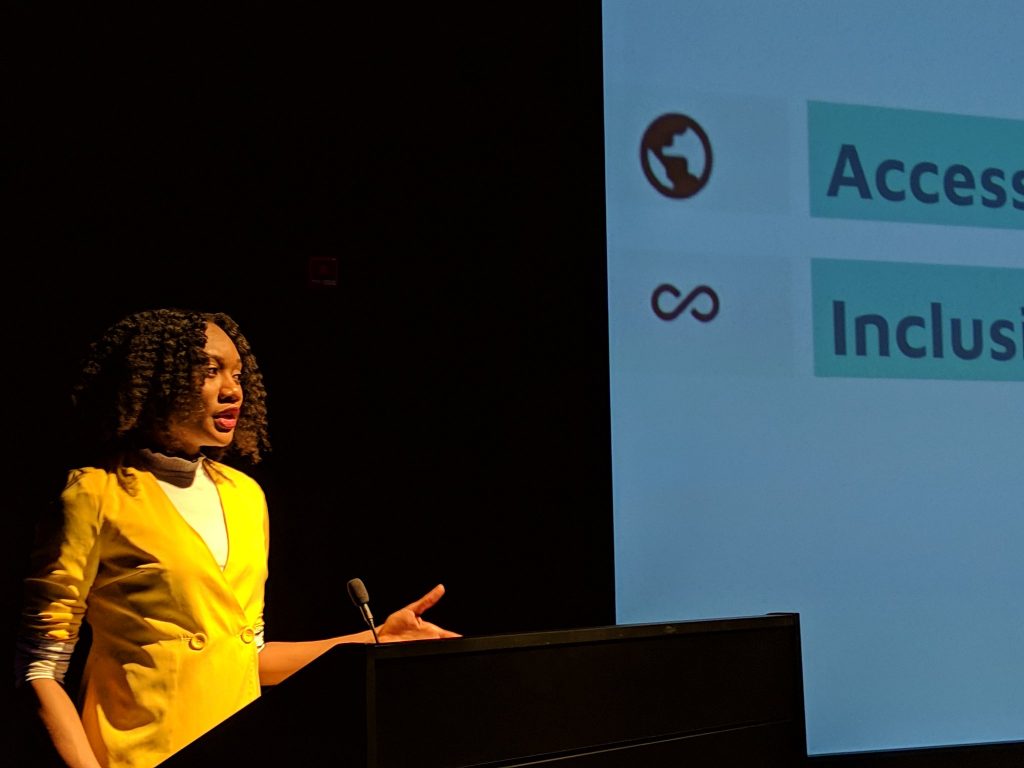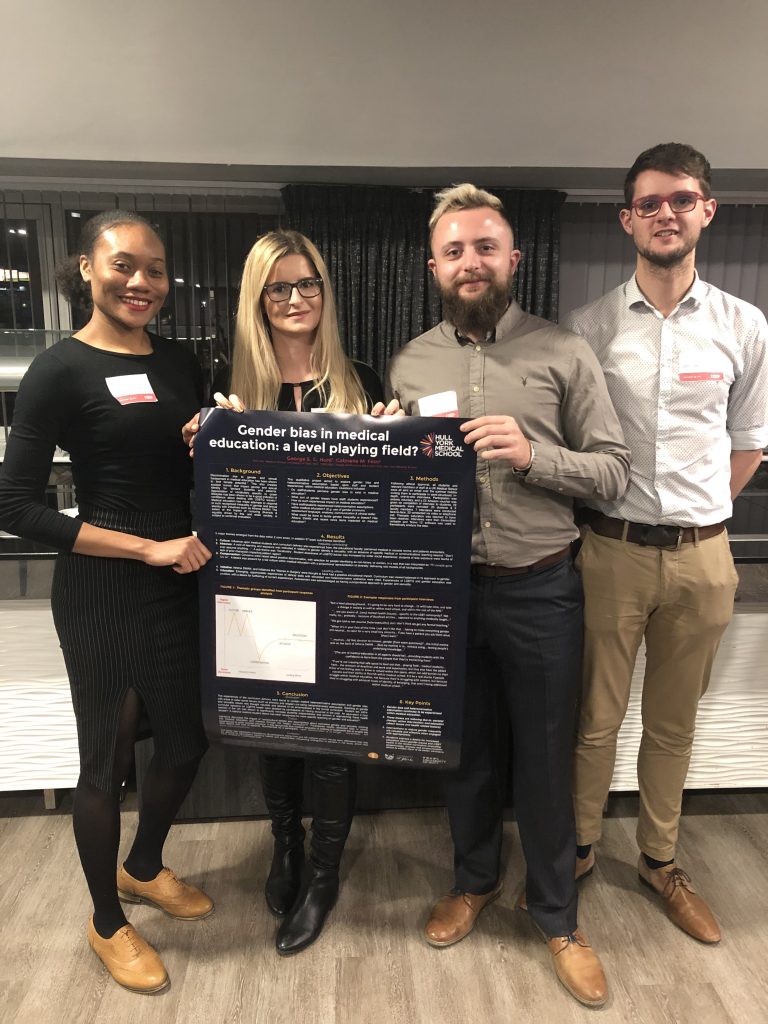Physician associate and medical students from Hull York Medical School attended the Healthcare Leadership Academy (HLA) conference to learn about how they could make a difference as fledgling leaders in healthcare. In this blog post, they share their experiences of the day.
Antonia Evans – Physician Associate
The Healthcare Leadership Academy Conference provided me with the opportunity to learn about how I can be an effective leader in my current position. One of the biggest takeaway points was that there is a difference between being a leader and being in a leadership position. The difference is that leaders embody leadership mindsets and actions. These mindsets and actions include: the ability to inspire others, having a high level of emotional intelligence which enables one to navigate the challenges of building relationships, the ability to teach others as well as being teachable oneself, being a problem solver and a wise decision maker.
I particularly enjoyed the panel discussion which addressed diversity within the NHS. An interesting statistic was revealed: 43% of the NHS workforce in London is from a BME background, yet only 14% of board-level positions are held by people from a BME background. The audience and panel highlighted the need for accountability as it is vital in changing behaviours. This accountability includes focused support and coaching for ‘middle management’ – as opportunities to bring about change are most likely to be effective at team level, as this is where most discrimination occurs. In addition, another point raised was that boards should dedicate regular reviews regarding the culture of their organisation and how inclusion is demonstrated within that organisation.

Antonia Evans presented her perspectives and experience from the HLA Annual Conference on the 21st February 2019 to a lecture theatre full of delegates at Hull Medical Society. Her talk was very well received by all local health professionals in attendance.
…
Hull Medical Society would like to thank Antonia for her illuminating presentation and for introducing the role of a Physician Associate!
…
…
Laura Sandland-Taylor – Foundation Year 1 Doctor
Having recently started FY1, I’ve been through the confusing situation of reading contracts, analysing rotas and trying to understand what I should and shouldn’t be doing. When I attended the Healthcare Leadership Academy conference in December last year they had a good workshop on how to be a leader without a leadership position and covered how a group of FY1s made a difference with regards to their rotas and pay. They explained how a group of them all had the same contract, but varying levels of pay and different hours on the rota – a problem that myself and many of my friends are facing now.

They discussed how the rotas are often made, how these differences in the rotas may occur, and how best to try and go about tackling these issues. It has helped me and my colleagues ensure that our rotas and pay match up correctly. It was empowering to see that a group of junior doctors had managed to take on the rota situation and beat it, despite all the bad press we hear about people not getting time off, even for their own weddings. I feel like their workshop equipped me with the confidence and the knowledge of how best to approach situations like this in the work place and how best to manage them to make a change, they made me realise that leadership and change isn’t just for managers or senior clinicians. This is such a common issue and their simple communication tips about making changes without having authority were extremely useful, particularly to me at this stage in my career!
…
…
Dru Lawson-Short – Physician Associate
As healthcare students and professionals, we all chose our careers, at least in part, for our ability to have a positive impact on others. We often think about this in the context of our day job, but less so how we can apply our knowledge and skills to driving positive policy changes at a government or local authority level. It was for this reason that a satellite session at the conference, on strategies to successfully lobby Westminster and Whitehall, particularly piqued my interest.
Some may question the relevance of this at a conference focussed on healthcare leadership, however all of us will recall the controversy of the junior doctors’ contracts and the very public fallout that ensued. This session made the case that it is imperative for future healthcare leaders to be able to lobby elected representatives when it is in the interest of our profession or our patients, as in the case of junior doctor contracts.
The speaker, a core psychiatry trainee from London, had himself driven the then London Mayor and now Prime Minister, Boris Johnson, to display “no smoking” signs in all London bus shelters. He used this example to outline the key elements of a successful lobbying strategy. Firstly, you must have a realistic and well-defined aim to your campaign and present this alongside concise and compelling evidence in favour of achieving it. Furthermore, outlining exactly how the person you’re lobbying can help your campaign will increase the likelihood of them contributing. Finally, persistence will pay off – especially if it’s easier for a representative or department to adopt your change than it is for them to ignore you!
This session made clear that healthcare professionals can apply their transferrable skills to driving legislative and policy change and that for the healthcare leaders of the future, this will be a key responsibility.
~~~~~~~~~~~~~~~~~~~
Many thanks to the Healthcare Leadership Academy for the opportunity to attend their annual conference. Special thanks to Dr Melody Redman for the invitation to our multidisciplinary team of reporters.

